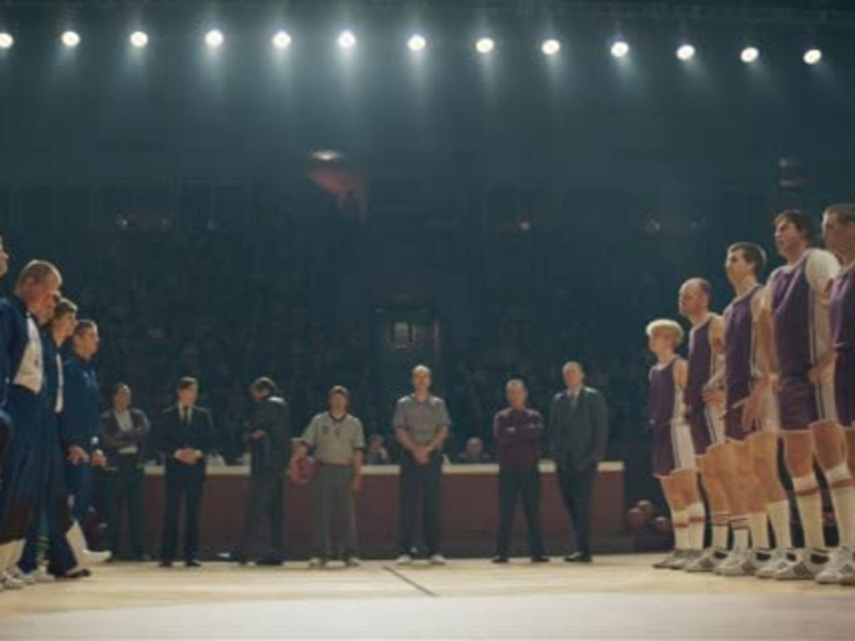
- Golden Globe Awards
Kalev (Estonia)
It is 1990 and the USSR is on the verge of collapse and Estonia, along with other Baltic countries, to be liberated. At the same time, yearly basketball battles evolve into a fight between Estonia and Soviet and politics are played hard on a basketball field and outside of it.
Ove Musting’s directorial feature debut tells a story about the Estonian team, Kalev, who choose to play in the Soviet Union’s basketball championship during the unrest time even though their countrymen are opposing it. The society is divided, and public opinion opposes the Estonian national team’s participation in the championship games. That creates dangerous situations both at home and on the road. Musting was 14 years old when the historical events took place. After that, during the last three decades, Estonia has changed a lot.
“I had a certain concept where in the 90-ies I wanted to be timewise,” explains the director via email. “With our production designer Tiiu-Ann Pello, we started to develop the overall look of sets trying to avoid the more grotesque details of the era, but also keeping in mind the authentic look of the time. We started very early with mapping all possible sports halls and eventually found out that we are forced to create these in CGI quite extensively. It is quite impossible to find authentic 90-ies interiors and exteriors in Estonia. So, the world in our movie is created as we visioned it – what is right for us. Some sets are combined, some built from scratch and some rear authentic finds.”
The journey to victory is tense, conflict, partly dishonest and corrupt but includes long hours of hard work, sweaty training, cramping mussels and teamwork in a time when there is lack of food, clean water and electricity amongst other things. In the end, when the team wins the last Soviet Union Cup in the following year, it ends up uniting the nation and softens even hard cord sport journalist’s skeptical heart.
“We got backstories as we interviewed all the players who were willing to share their insights. But memory is a tricky thing. So, some facts are true, but mostly it is fiction. Aivar Kuusmaa, the original player, helped to train our actors and he was of great help to develop the basketball games and their choreography.”
The story has a strong correlation to a modern time. According to Estonian World online magazine Estonian Film Institute’s jury described Kalev: “The film’s director addresses themes that resonate today: the right to national self-determination, national pride, resistance to an imperialist worldview and, finally, sport as a universal ideal that transcends political clichés.”
Soon after the Soviet Union’s basketball championship games USSR collapsed and Estonia regained its independence. Kalev was to be released in 2021 – the year of the anniversary of events – but due to the pandemic it was forced to be postponed.
“It is a kind of coincidence that the history repeating itself so soon and making the film more relevant,” Musting opines as he makes references to the war in Ukraine. “Estonians very clearly remember the not-so-distant events of 91, the political turmoil and uncertainties of the time. We never expect it will be peaceful to live next to Russia. February 24th, 2022, co-incidentally also Estonian Independence Day, was a very, very sad day for us as the terror started again.”